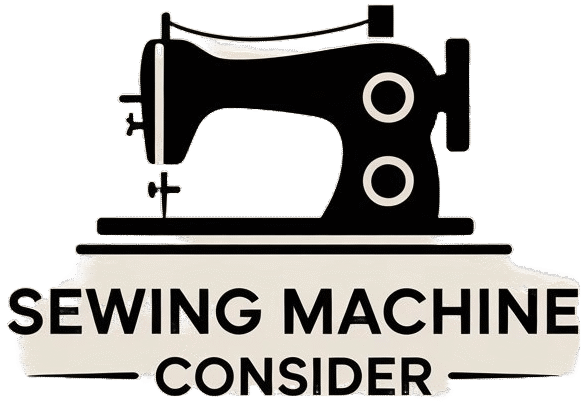In workplaces where emotions run high — from healthcare settings to educational institutions — the ability to manage challenging situations calmly is invaluable. OGFAP (Optimised Global Framework for Aggression Prevention) has emerged as a powerful training model that equips professionals to handle aggression, stress, and conflict with composure and empathy.
Through OGFAP training, individuals learn to transform tension into cooperation, building safer, more supportive environments for everyone involved.
Understanding OGFAP
At its heart, OGFAP focuses on the prevention and management of aggression through communication, awareness, and compassion. Unlike traditional intervention models, OGFAP encourages understanding behavior rather than simply reacting to it.
It teaches staff to read early signs of agitation, apply de-escalation techniques, and use non-threatening approaches. By doing so, they can prevent a situation from escalating into confrontation.
OGFAP promotes a shift from control-based responses to connection-based interactions, where empathy plays the leading role.
Why OGFAP Matters in Modern Workplaces
In today’s demanding work environments, stress and emotional overload can quickly lead to tension. OGFAP equips staff with strategies to respond to aggression safely and respectfully.
Organizations that adopt OGFAP notice tangible improvements — fewer incidents, reduced absenteeism, and higher morale. It’s not only about safety; it’s about creating a workplace culture where people feel seen, heard, and supported.
OGFAP in Healthcare and Social Care
Healthcare professionals often encounter individuals in distress, pain, or confusion. OGFAP training helps staff recognize these emotional cues and respond appropriately.
By maintaining calm body language, speaking gently, and validating emotions, caregivers can reduce patients’ anxiety and aggression. Hospitals and care homes implementing OGFAP report significant reductions in physical interventions and a rise in patient satisfaction.
In social care, OGFAP fosters dignity and trust between service users and staff — transforming difficult moments into opportunities for healing.
The Core Principles of OGFAP
OGFAP is guided by several foundational principles that make it both practical and humane:
-
Prevention over Reaction: Address signs of distress early to avoid escalation.
-
Empathy and Respect: Every individual deserves understanding, regardless of behavior.
-
Communication as a Tool: Words, tone, and posture are powerful instruments for peace.
-
Safety for All: Protecting both staff and individuals is always the priority.
-
Reflective Practice: Learning from each incident ensures continuous improvement.
These principles create a balanced approach that promotes both emotional intelligence and physical safety.
How OGFAP Training Works
OGFAP training blends theory and practice through interactive workshops, role-playing, and scenario-based exercises. Trainees learn to:
-
Recognize verbal and non-verbal signs of distress.
-
Use calming techniques such as tone modulation and body posture.
-
Apply safe, non-harmful physical interventions (only when necessary).
-
Reflect on their emotional responses after incidents.
The training is designed to build confidence and reduce fear when facing aggression, ensuring that professionals remain in control — both emotionally and physically.
OGFAP and Emotional Intelligence
Emotional intelligence is at the heart of OGFAP. By understanding their own emotions, professionals can regulate their reactions and make better decisions under pressure.
OGFAP encourages empathy not as weakness but as strength — the ability to connect, de-escalate, and protect. The program helps individuals develop calmness in chaos, a skill that enhances both professional performance and personal well-being.
Building Confidence Through OGFAP
Many participants describe OGFAP as “life-changing.” They feel more capable of facing unpredictable situations without fear. Confidence grows as they realize they can maintain safety without confrontation.
This newfound assurance often translates into better teamwork, smoother communication, and a more positive workplace culture. Employees no longer feel powerless; they feel prepared.
Transforming Workplace Culture with OGFAP
Organizations that integrate OGFAP into their policies witness remarkable transformation. The shift from a reactive mindset to a preventive, empathetic approach reshapes daily operations.
Leaders report improved staff retention, greater cooperation, and a shared sense of purpose. When employees know they are supported and equipped, they naturally handle challenges more gracefully.
OGFAP in Mental Health Services
Mental health settings benefit deeply from OGFAP training. Here, aggression often stems from fear, confusion, or unmet needs. OGFAP equips staff with trauma-informed strategies, emphasizing compassion over control.
For example, offering choices, maintaining personal space, and acknowledging emotions can quickly calm a distressed patient. This respectful interaction builds trust and therapeutic rapport, crucial in recovery-focused care.
Real-Life OGFAP Success Stories
Reducing Aggression in a Rehabilitation Center
A rehabilitation facility implemented OG-FAP to address recurring confrontations between residents and staff. Within four months, incidents dropped by 45%, and staff reported feeling safer and more supported.
One care worker shared, “OGFAP helped me see beyond the behavior. When I listened and showed empathy, aggression faded much faster.”
Enhancing Safety in Emergency Departments
Emergency wards can be highly charged environments. After introducing OG-FAP, one hospital saw an impressive decline in security calls. Staff credited their training for helping them remain calm and defuse conflicts early.
Patients also noticed the difference — describing interactions as “more respectful” and “less intimidating.”
Creating Positive Change in Schools
Schools are adopting OG-FAP to manage challenging student behaviors. By teaching teachers how to use calm communication, maintain safety, and prevent escalation, classrooms have become more peaceful and inclusive.
Students respond positively when they feel respected, proving that understanding is more powerful than authority.
The Benefits of OGFAP Training
-
Improved Communication: Promotes open, empathetic dialogue.
-
Reduced Incidents: Early intervention prevents escalation.
-
Enhanced Confidence: Staff feel equipped to handle aggression safely.
-
Better Team Dynamics: Encourages cooperation and mutual support.
-
Increased Well-being: Reduces stress and burnout among professionals.
Each of these benefits contributes to a harmonious and resilient workplace environment.
Integrating OGFAP into Organizational Policy
For OG-FAP to succeed, it must be embedded into everyday operations. This includes regular refresher training, supportive leadership, and open debrief sessions after incidents.
Organizations that treat OG-FAP as a long-term cultural investment — rather than a one-time course — experience lasting results in both safety and morale.
OGFAP and Leadership Development
Leaders who undergo OG-FAP training develop stronger emotional awareness and communication skills. They learn to guide teams through challenges with calm authority, setting the tone for the entire organization.
When leaders practice what they preach — patience, empathy, and respect — staff naturally follow their example.
Challenges in Implementing OGFAP
While OG-FAP is highly effective, challenges such as budget constraints or staff resistance to change may arise. However, the key lies in consistent reinforcement and leadership support.
When employees witness the tangible benefits — fewer incidents and improved teamwork — commitment to the framework grows naturally.
The Future of OGFAP
As workplaces evolve, OG-FAP continues to adapt. Modern programs now include virtual simulations, online modules, and interactive digital tools for ongoing learning.
The integration of artificial intelligence and behavioral analytics is helping organizations predict potential conflicts before they occur, making prevention even more precise.
OG-FAP’s future is not just about safety — it’s about creating a global culture of understanding and emotional intelligence.
Personal Growth Through OGFAP
OG-FAP doesn’t just change how you work; it changes how you live. Participants often report feeling calmer at home, more patient with loved ones, and more confident in everyday interactions.
This personal transformation shows that the skills learned through OG-FAP extend far beyond the workplace — shaping better people, not just better professionals.
Conclusion
OG-FAP represents a forward-thinking approach to workplace safety and human connection. It teaches that grace under pressure is not a natural gift — it’s a learned skill. By focusing on empathy, communication, and understanding, OG-FAP transforms aggressive encounters into opportunities for trust and respect.
From hospitals to classrooms, the success stories are undeniable: when people feel understood, they respond with cooperation. OG-FAP is not just training — it’s a movement toward calmer, safer, and more compassionate workplaces.



